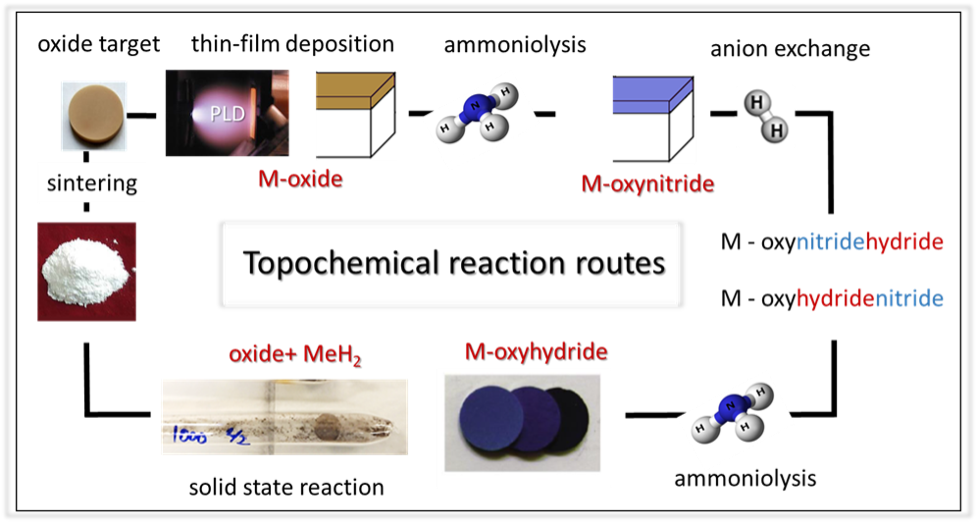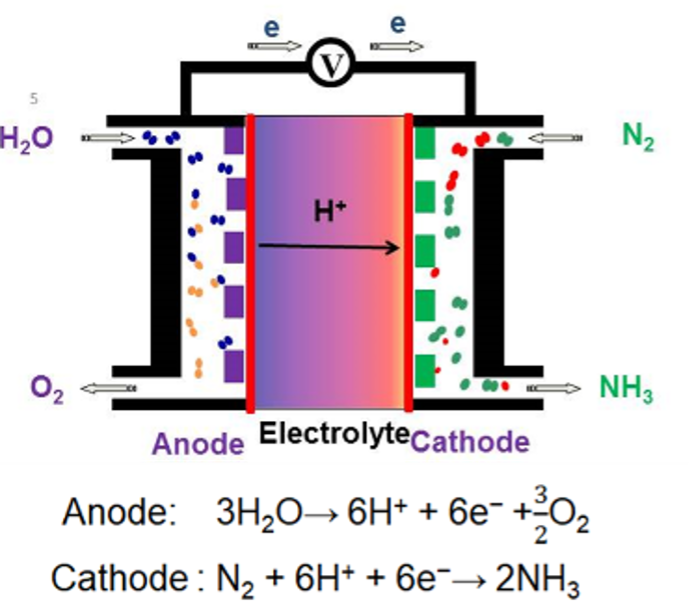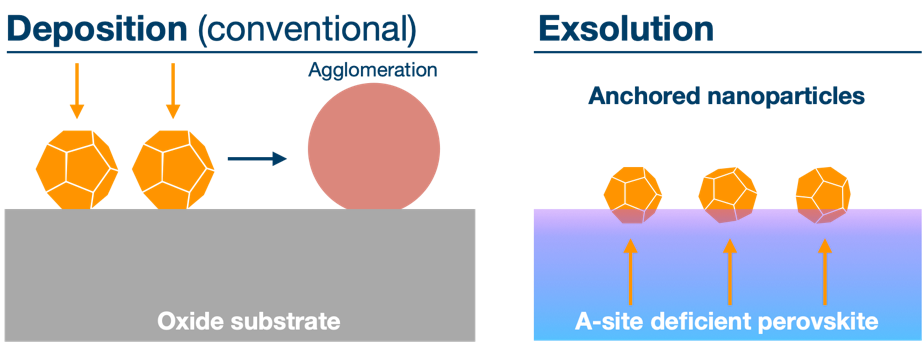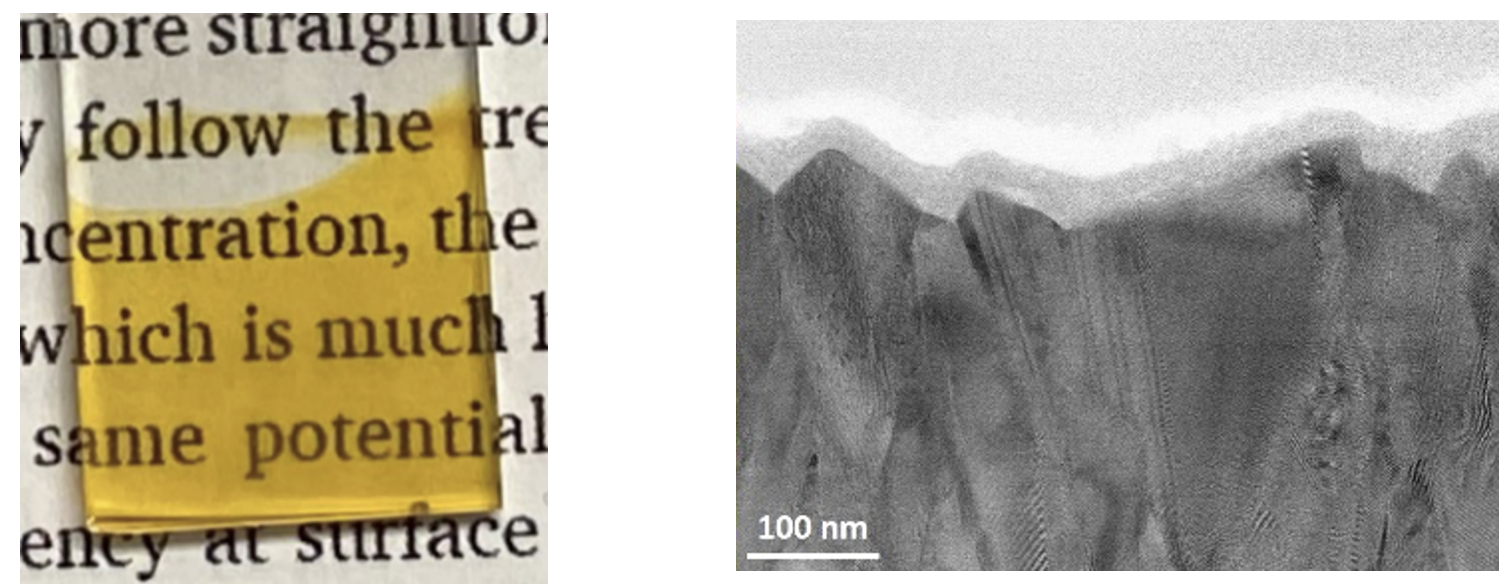Bachelor and master projects can be developed according to the qualifications and interests of potential candidates. Projects typically involve a combination of these approaches and methods:
-
Synthesis or thin film deposition of new materials or nanostructures
-
Structural, microstructural and chemical characterisation (XRD, SEM, XPS, etc.)
-
Electrical measurements of ionic and electronic conductivity
-
Electrochemical or photoelectrochemical characterisation of cells
-
Surface kinetics studies using isotope exchange techniques
-
Atomistic simulations using density functional theory (DFT)
Candidates will learn to interpret their results using different types of models (e.g., defect chemistry, transport theory, physical chemistry). This gives a strong basis for application of theory and critical discussion of the results in MSc theses, which are important criteria for quality research and highly rated theses.
Examples of BSc/MSc projects
Synthesis and characterisation of novel proton conducting materials (Truls Norby)
Mixed Anion metal Oxides (MAOs) – novel functional materials (Reidar Haugsrud)
MAOs are families of metal oxides with one or more anions in addition to the oxide ion itself (e.g. SrVHO2 and BaCeHxNyO3-z). These are newly discovered materials with great potential for design of functional properties relevant for applications in sustainable energy technologies. We aim to characterize their functional properties: conductivity and transport properties, surface kinetics, as well as structure, microstructure and defect structure.

Ionic and mixed ionic-electronic conductors – materials for future energy technologies (Reidar Haugsrud)
Oxides conducting protons and/or oxide ions (ionic conductors), and mixed ionic and electronic(electron and electron holes), are central in development of sustainable energy technologies. The goal of the projects will be to synthesize and characterize the properties of new oxide based materials for electrodes or electrolytes. We will develop essential insight of structure, microstructure and defect structure to functional processes.

Exsolution of nanoparticles for energy conversion technologies (Jonathan Polfus)
Nanoparticles tend to agglomerate over time at elevated temperatures which reduces their catalytic activity. Exsolution is a novel method for direct growth of nanoparticles from an oxide support, and these show excellent properties since they are anchored to the oxide support. Projects can be on optimization and fundamental understanding of the exsolution process using a range of different methods. The work will be connected to a UiO Sustainability project and SOLARIS.

Tantalum nitride tandem photovoltaic structures for water electrolysis with solar light (A. Sakis Chatzitakis)
The project includes synthesis and structural characterisation of thin films of Ta3N5 and integrations in photovoltaic (PV) structures. It will involve traditional photoelectrochemistry with many parameters to study, from basic electrochemistry to advanced photoelectrochemistry. Focus will be on the oxygen evolution reaction (OER).

Scalable, efficient, and robust catalysts for energy applications (A. Sakis Chatzitakis)
There is an urgent demand for low-cost, efficient, and robust catalysts with a scalable, green, and sustainable synthesis route. We develop and offer the next generation of catalyst materials in the form of powders as well as films and we want YOU to be part of it. See an example below, where exsolved Ni nanoparticles on SrTiO3 have been modified with Au nanodeposits, making an advanced catalyst for photoelectrochemical water splitting and hydrogen production.

We have large flexibility and we can tailor the project according to YOUR needs for energy conversion, such as CO2 reduction to high-end products, water (photo)electrolysis and plasmonic photocatalysis for hydrogen production, organic electrosynthesis of pharmaceuticals and high temperature steam electrolysis for hydrogen production at elevated temperatures and pressures. You name it!
Relevant Master programmes at UiO
Recommended BSc courses
- MENA3100 – Characterization of Materials
- MENA3201 – Energy Materials
- KJM3110 – Electrochemistry
- KJM3120 – Inorganic Materials Chemistry
- FYS3280 – Semiconductor Components